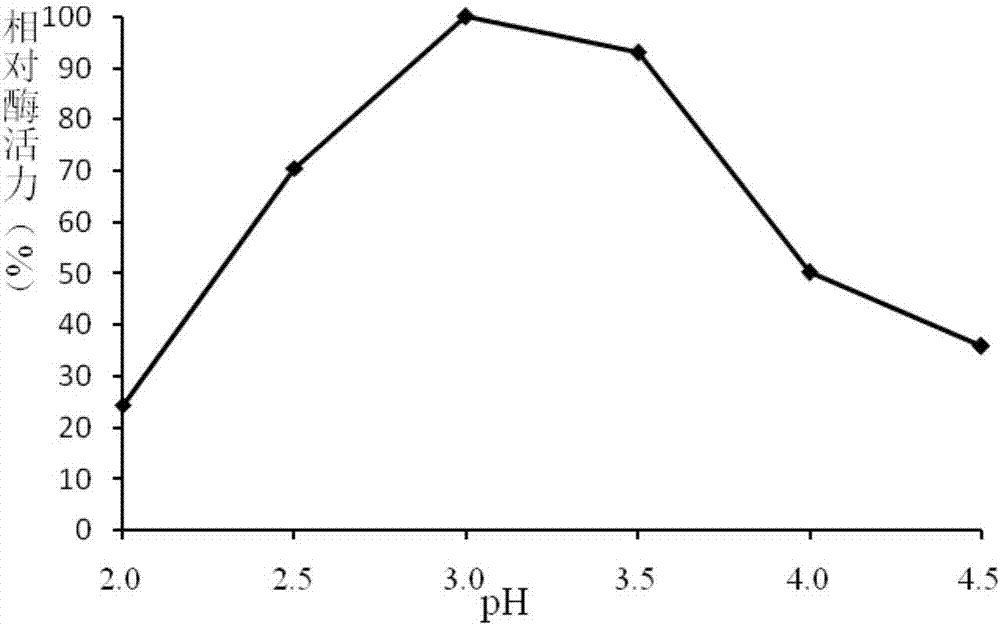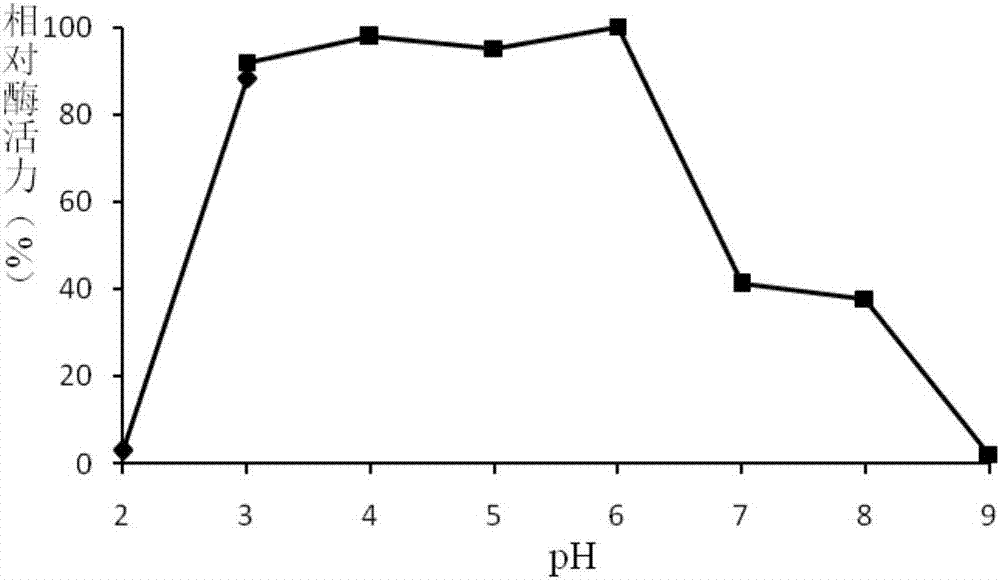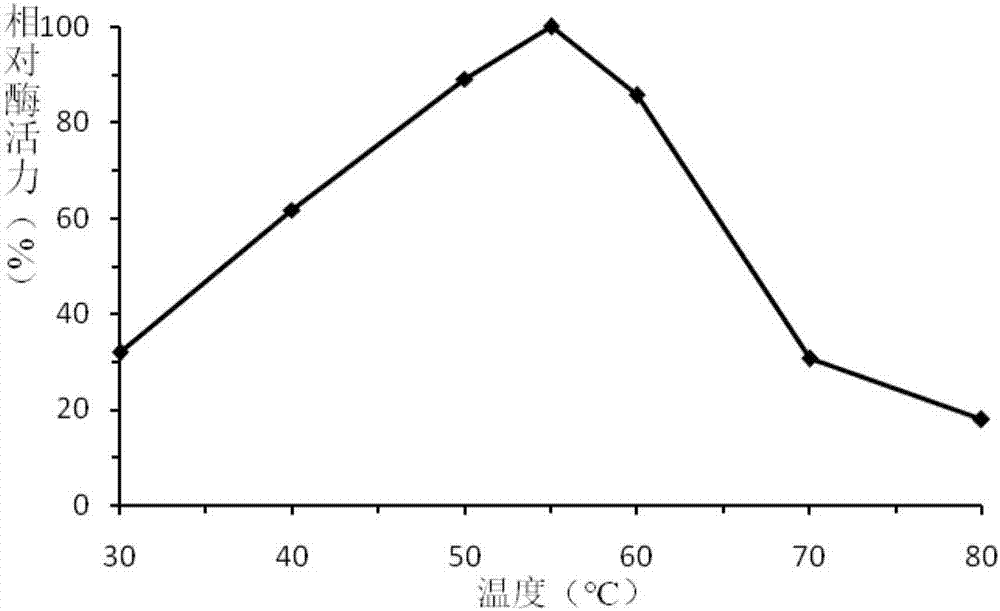Fungus-derived acid protease g412 as well as gene and application thereof
An acid protease, ppic9-g412 technology, applied in the field of genetic engineering, can solve the problems of low enzyme activity, reduced catalytic efficiency, and restrictions on the application of acid protease, and achieve the effect of easy fermentation production and high reaction temperature
- Summary
- Abstract
- Description
- Claims
- Application Information
AI Technical Summary
Problems solved by technology
Method used
Image
Examples
Embodiment 1
[0047] Example 1 Cloning of protease encoding gene g412
[0048] Extract Talaromyces leycettanus JCM 12802 genomic DNA and place it at -20°C for use.
[0049] Design cloning primers g412F and g412R, and use Talaromyces leycettanus JCM 12802 genomic DNA as template for PCR amplification. The PCR reaction parameters are: 95℃5min; 94℃30sec, 60℃30sec, 72℃2min, 35 cycles, 72℃10min. A fragment of about 1800 bp was obtained, and the fragment was recovered and sent to Ruibo Biotechnology Co., Ltd. for sequencing.
[0050] Table 1 Primers needed for this experiment
[0051]
[0052] Extract Talaromyces leycettanus JCM 12802 total RNA using Oligo(dT) 20 And reverse transcriptase to obtain a strand of cDNA, and then design the primers g412F and g412R (see Table 1) to amplify the open reading frame, amplify the single-stranded cDNA, obtain the cDNA sequence of the protease, and send the amplified product after recovery Sequencing by Ruibo Biotechnology Co., Ltd.
[0053] After comparing the geno...
Embodiment 2
[0054] Example 2 Construction of Protease Engineering Strain
[0055] (1) Construction of expression vector and expression in yeast
[0056] Using the correctly sequenced protease g412 cDNA as a template, primers F and R with SnaB I and Not I restriction sites (see Table 1) were designed and synthesized to amplify the coding region of the mature protein of g412. The PCR product was digested with SnaB I and NotI and ligated into the expression vector pPIC9 (Invitrogen, San Diego). The mature protein sequence of protease g412 was inserted downstream of the signal peptide sequence of the above expression vector to form a correct reading frame with the signal peptide. The yeast expression vector pPIC9-g412 was constructed and transformed into E. coli competent cells Trans1. The positive transformants were subjected to DNA sequencing, and the transformants with the correct sequence were used to prepare large quantities of recombinant plasmids. Linearized expression plasmid vector DNA ...
Embodiment 3
[0060] Example 3 Preparation of recombinant protease
[0061] (1) The protease gene g412 is expressed in large quantities at the shake flask level in Pichia pastoris
[0062] The transformants with higher enzyme activity were selected and inoculated into 300mL BMGY liquid medium in a 1L Erlenmeyer flask, cultured with shaking at 30℃, 220rpm shaker for 48h; centrifuged at 5,000rpm for 5min, gently discard the supernatant, and then add 100mL containing 0.5% methanol BMMY liquid medium was induced and cultured at 30°C and 220 rpm for 72 hours. During the induction culture, add methanol solution once every 24 hours to compensate for the loss of methanol and keep the methanol concentration at about 0.5%; (3) Centrifuge at 12,000×g for 10 minutes, collect the supernatant fermentation broth, detect the enzyme activity and perform SDS-PAGE protein Electrophoresis analysis.
[0063] (2) Purification of recombinant protease
[0064] The supernatant of the recombinant protease expressed in the...
PUM
| Property | Measurement | Unit |
|---|---|---|
| molecular weight | aaaaa | aaaaa |
Abstract
Description
Claims
Application Information
 Login to View More
Login to View More - R&D
- Intellectual Property
- Life Sciences
- Materials
- Tech Scout
- Unparalleled Data Quality
- Higher Quality Content
- 60% Fewer Hallucinations
Browse by: Latest US Patents, China's latest patents, Technical Efficacy Thesaurus, Application Domain, Technology Topic, Popular Technical Reports.
© 2025 PatSnap. All rights reserved.Legal|Privacy policy|Modern Slavery Act Transparency Statement|Sitemap|About US| Contact US: help@patsnap.com



